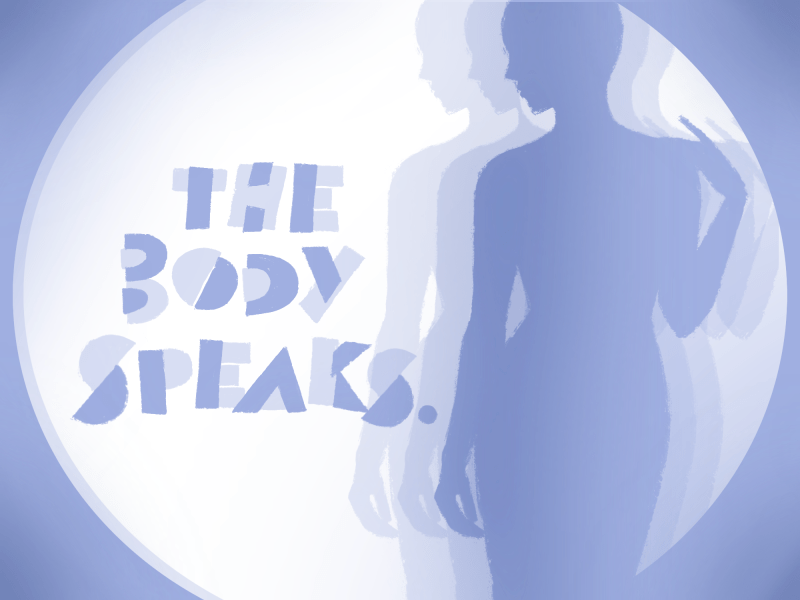In this weekly creative nonfiction series, we explore themes of intimacy and sexual assault, as experienced by Stanford students. Storytellers take agency over their bodies, directing narratives that make their experiences visible. The story was constructed based on verbal interviews with the storyteller, with narrative elements added by the author.
This series is meant to connect people, validate shared experiences and help survivors tell their stories. It is a space for healing, so come in, take your shoes off and make yourself at home. Most importantly, take care of yourself.
Content warning: This series mentions sexual assault and intimate partner violence.
“I think she feels like you’re exaggerating … you know … because you seemed fine at the beginning. She doesn’t really feel like you’re the perfect victim.”
My close friend sounds nervous as she recounts the opinion of one of my friends over brunch.
“Well, do you think she’s really on his side?” I ask.
She sighs. “I don’t know.”
The girl we’re talking about, a mutual friend of ours, had previously told me that she would do anything to protect me from him. We weren’t best friends, but we were close — close enough that I was blindsided by her sudden decision to side with my abuser. She started spreading lies about me to him. She told him that I was the type of person to sabotage his personal relationships, a dangerous accusation that later led him to retaliate against me. After seeing him tear up in response to a conversation I had with him about how he hurt me, she dropped everything to comfort him. Not me, but him.
I’ve felt a lot of emotions since then: anger, fear, confusion. The feeling of being betrayed by someone you cared about and trusted with something so vulnerable is heartbreaking. I had never directly told her about what happened, either. She figured it out before telling me that she supported me, a dedication to my trauma that I still don’t understand. Maybe she was just curious about my distancing from my previously close-friend-turned-assaulter, or maybe she was just interested in gossip. It doesn’t make a difference to me anymore.
Since then, I’ve thought a lot about her decision to pass judgment on an experience that she never bore witness to. While my family and friends watched me pass through periods of intense depression and anxiety, self-hatred and existential dread, she saw the version of me that I let everyone else see: at peace, motivated, kind. She took that as a representation of the severity of my experience, doubting what I went through. She was wrong and tried to punish me for not exhibiting the characteristics of the victim I was “supposed” to be, as if every survivor should be depressed and anxious every moment of their lives.
The thing is, when you experience sexual assault in college, everyone has something to say about it. People think that college is drama-free, but they’re wrong. You’ll meet the best and worst people of your life, have the best and worst experiences of your life, and find out the best and worst parts of yourself. College is the most intense two ends of one spectrum, and people are always trying to figure out their own shit. It’s a wonder that anyone has the time to worry about other peoples’ shit too.
Another few weeks later, I find out that my abuser has been telling people that he’s being accused of sexual assault, but he didn’t do it. So the new story goes: I’m the overdramatic liar that’s causing him to lose opportunities, and he’s the innocent ex-boyfriend.
But he never loses anything — I do. He gets to continue succeeding, and I have to live with the trauma of having repeatedly experienced sexual assault from him. But the hardest part of recovering from this trauma is dealing with the audacity of other people to comment on it. They think they know who I am, and who he is: if I’m not the perfect victim, then he can’t be the perfect abuser. They can continue to be his friend, or not take me seriously. They can continue to pass judgment on a situation so unjust, a trauma so absolute, that the depth of it would suffocate them the way it suffocates me if they knew what it was like.
I don’t have a resolution to this frustration. The best thing I can do is remind myself that I know who I am, and I know who he is. Everyone who thinks they know me doesn’t know anything. If they knew me, they would love me. I’ve found that the people who try to hurt us are a tiny piece of this big, beautiful world we belong to. It’s easier said than done, but it seems like everyone cares more about drama than they do each other. And it sounds corny, but until you live the nightmare of a situation like this, you won’t get this need to harvest, stock and nurture joy. I hope you never do.
My favorite song these days is “A World Alone” by Lorde. In it, she sings:
Raise a glass, ’cause I’m not done saying it
They all wanna get rough, get away with it
Let ’em talk, ’cause we’re dancing in this world alone
World alone, we’re alone
She’s right. If you aren’t romanticizing your life, if you aren’t doing justice to the wonderful joy you bring to it, if you aren’t taking care of the people around you, what are you doing? I know people are talking. Let them talk.
